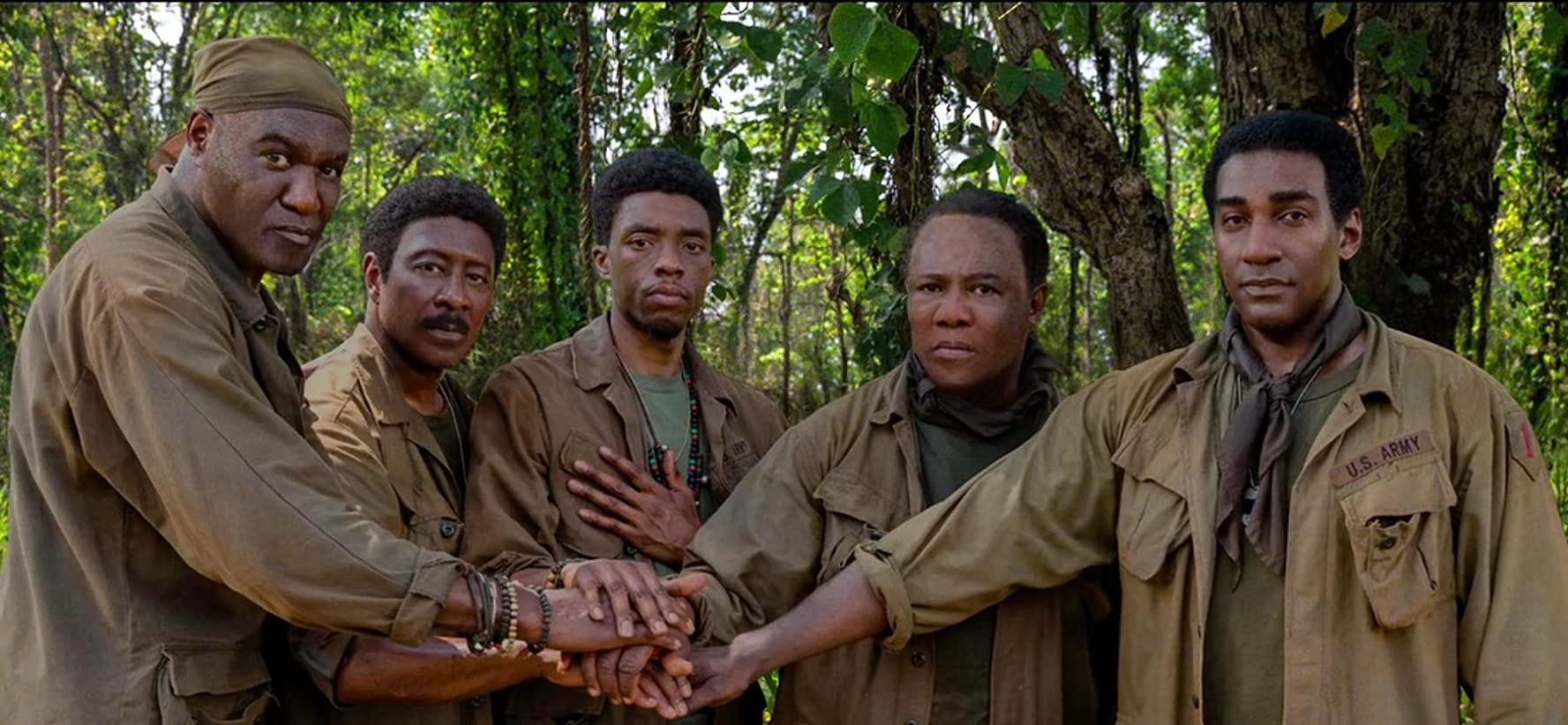Written with gratitude and in dedication of actor Chadwick Boseman (1976–2020)
Originally posted 9/11/2020 by Carlos W. Steele of Incluvie

“You want a player who doesn’t have the guts to fight back?”
“No, no… I want a player whose got the guts, NOT to fight back.”
–42
I was 12 going on 13 when I first saw Boseman light-up the screen.
‘Happened in the Spring of 2013. A long time ago, but only if you measure it in terms of’—OKAY, this isn’t Stand By Me…
But this is me wanting to get your attention (whomever might be reading this) so, in the most efficient way possible, I can get across just how distinctively the recently deceased Chadwick Boseman (d. Aug. 28) struck a chord with me — and without a doubt so many others — upon first seeing him star in director Brian Helgeland’s 2013 biopic/drama 42.
So, not today Richard Dreyfuss, but maybe we’ll get back to you sometime down the road…
Seeing that the film was essentially his first big, mainstream feature, and with garnering a leading role — portraying the revolutionary ball-player Jackie Robinson — Boseman, without question, delivered a performance that is still so incredibly moving, respectful, genuine, and true to the core of his obviously sincere, artistic heart; and with that, it is indeed so saddening to see him pass.
Aside from the fact that the film itself is a truly wonderful modern production, utilizing a lens that is considerably well-researched and unafraid to take the racial slurs, shouts, screams and heat — that not only Robinson was such an endurer of, but all Black and non-white individuals reeling from times so heavily discordant with accepting — and more importantly respecting People of Color — not to mention, one of the greatest baseball players to have ever lived — 42 thrives with an open-voice, accurate depictions, and the beautiful Chadwick Boseman making both a crackerjack stance on antiracism and crafts an endearingly charismatic homage to his nonfictional character.
Experiencing various transitional and rather disruptive periods with moving from team to team, Boseman embodied the most renowned years of Robinson’s life in the film; signing with sports veteran and eventual manager of the Brooklyn Dodgers Branch Rickey (portrayed with kindness and care by the prolific Blade Runner-actor Harrison Ford) in 1945, performing exceedingly well as a new member of the minor league Montreal Royals (despite facing some of his earliest and most painful struggles with the greater public’s hate and anger regarding his up-and-coming ball-playing success), and finally landing his spot with the also predominantly racist Dodgers.
Along the way, Robinson experiences both acceptance and refusal by his team members, fans, haters, and a mixture of the three, amidst also fortunately maintaining a loving relationship with his girlfriend/wife Rachel Annetta Robinson, who, bless her heart, is still alive today at age 98; the film also recalls the two sharing their first of eventually three children together.
Again, altogether — the film is great. But Boseman is extraordinary.
Seeming to symbolize an actor whose talent and guts — alike the kinds of guts Ford refers to Boseman in their first encounter in 42 as being crucial for not fighting back, as opposed to the correlate (the later Get On Up and Message from the King) face would embark on a career that is not only so extensively missed already in the film industry, but by all the fans, followers, and any other individuals inspired by Boseman’s natural, fearless on-screen stature.

In short, from popping up in the early 2010s with brief supporting roles and TV-appearances (Persons Unknown, Justified) to storming forth in playing the iconic Mr. Robinson in 42 to succeeding with the recent Marvel popularity (Black Panther, Avengers Endgame) and, just this year, fitting into the latest Spike Lee Joint, Boseman has left a wonderful mark on the furthering cinema, film actors and actresses, directors and writers, and perhaps most importantly: young Black voices, artists, and, well, guts.




If one thing’s for sure, Boseman was one hell of a man, performer, and Cluvie.

Leave a Reply